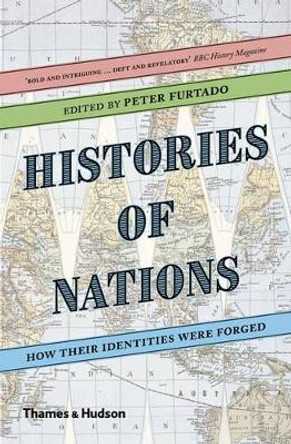Description
About the Author
Dr Peter Wothers is a Teaching Fellow in the Department of Chemistry, University of Cambridge, and a Fellow and Director of Studies in Chemistry at St Catharine's College. He is heavily involved in promoting chemistry to young students and members of the public, and, in 2010, created the popular Cambridge Chemistry Challenge competition for students in the UK. Peter is known nationally and internationally for his demonstration lectures and presented the Royal Institution Christmas Lectures, titled The Modern Alchemist, in 2012. He has also authored a number of popular textbooks, including Why Chemical Reactions Happen and Chemical Structure and Reactivity, with colleague James Keeler. In 2014, he was awarded an M.B.E. for Services to Chemistry in the Queen's Birthday Honours.
Reviews
[An] enchanting, eccentric book ... wickedly entertaining. * Simon Ings, The Spectator *
Such a book could only have been written by an academic deeply learned and passionate about chemistry ... it is also the kind of book whose title might pique someone's interest in a bookshop and inspire a lifelong passion for chemistry and its history ... it seems worth celebrating that some academics are still producing books so curious, wide-ranging and enthusiastic. * Matthew Reisz, The Times Higher Education Supplement *
[An] erudite, complex, but always enjoyably unbuttoned account of how the elements acquired their names. A charming way to convey the history of this science. * New Scientist *
In this stimulating chemical chronicle, Peter Wothers unravels tangled etymologies. * Barabara Keiser, Nature *
Wothers book is an enjoyable read for anyone interested in chemistrys history - and especially for anyone with an interest in why we chemists use the words we do. * Brett F. Thornton, Nature Reviews Chemistry *
It is immediately clear that a phenomenal amount of research has gone into [the book]. The author's own passion for chemistry's history is evident, through references to a huge variety of (al)chemical texts... The book is well paced and clearly organised, and definitely accessible to chemists and non-chemists alike... The rich tapestry of overlapping and interconnected stories means that any reader will come away with renewed appreciation of the art and artifice of our chemistry. * Philip Broadwith, Chemistry World *
Thorough and well-researched exploration of how the elements were named ... Readers even casually interested in the history of chemistry would do well to pick up this energetic survey. * Publishers Weekly *
Antimony, Gold, and Jupiter's Wolf unfolds as a series of more-or-less separate and chronological stories ... this makes it easy for a reader to easily dip in at any point ... lively volume. * Nicola Pohl, Science *
Wothers takes us through these mysterious chemical treatments and discoveries with the ease of a practiced writer. The amount of information he reveals is astounding and also often entertaining. * Gerrard Russell, Magonia Review *
Detailed and thorough ... A well-written reference book on history of science for the enthusiast, connoisseur or professional. * Cosette Molijn, NRC Handelsblad *
Peter Wothers combines history of science, the study of the origin of the names of the elements and general chemical revelations in his elemental tour, which proved delightful. * Brian Clegg, Popular Science blog *
A timely study of the chemical elements ... Wothers has included a great deal of material in his book, and any chemist interested in the history of his subject will enjoy it. Some will wish to read it from cover to cover, while others will dip into it for information on particular elements. * John Hudson, RSC Historical Group Newsletter *
This erudite yet accessible and entertaining account describes the challenges, confusions, illuminations, and jealousies involved in the naming of the underlying fabric of the everyday world. Anyone who enjoys the practice of science will be enriched by what they will read here. * Peter Atkins, University of Oxford *
Everything is here: from making phosphorus out of faeces all the way to superheavy elements, illuminated by a delightful combination of chemical insight and historical knowledge. * Martyn Poliakoff *
Book Information
ISBN 9780199652723
Author Peter Wothers
Format Hardback
Page Count 290
Imprint Oxford University Press
Publisher Oxford University Press
Weight(grams) 498g
Dimensions(mm) 241mm * 161mm * 29mm







